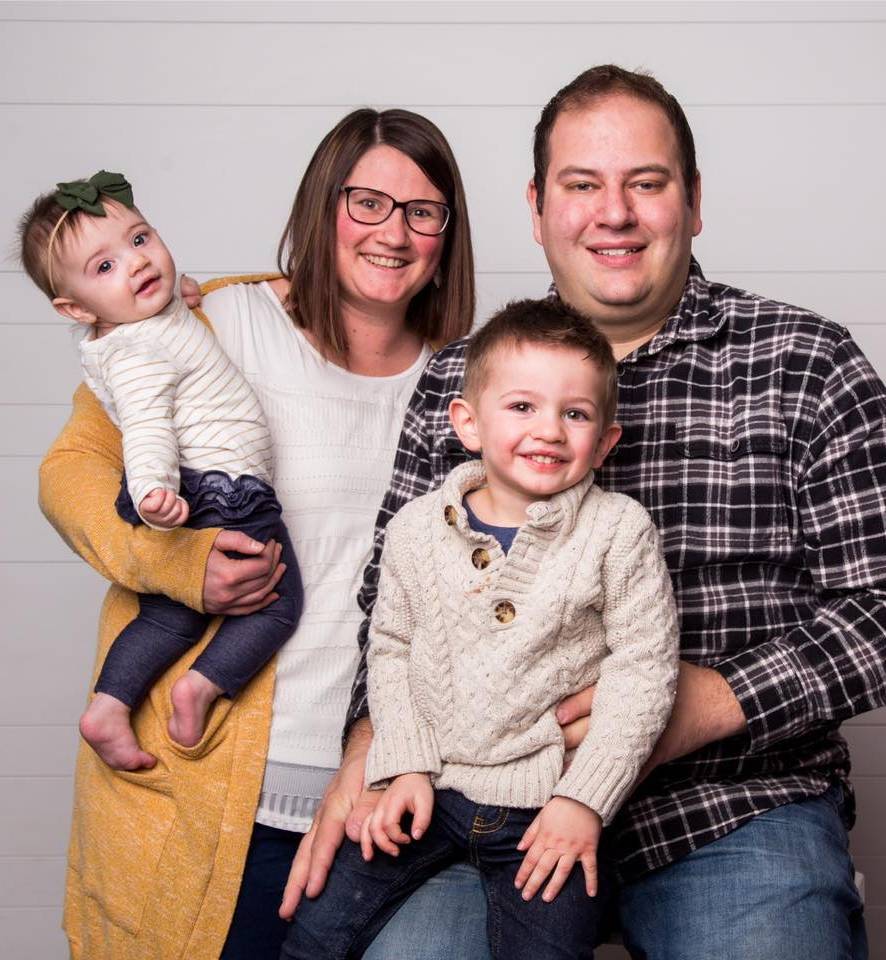

Anne Leake-Malbica was 16 years old when she took her first summer job working as a caregiver to adults with severe disabilities. Her motivation to give up her summer vacation came from the desire to earn money to go on a trip with her high school drama class.
“That job changed my life,” Anne said. “I fell in love with individuals with disabilities that summer.”
The following school year Anne enrolled in UVU’s concurrent enrollment program.
“I stopped going to my regular high school classes because I wanted to work and make a difference for the people I had come to love so much. I took a few UVSC classes to keep my parents and counselors happy, but had no intention of doing anything other than working at the time,” she said.
Anne worked over 3,600 hours that year compared to the average full-time adult employee who works 2,000 hours per year — meaning, on average, she worked 80-hour weeks. “I made $27,000 my first year working on a wage of $7.45 per hour,” she said.
By the time Anne was 17, she was a senior staff member and an acting manager. One of her responsibilities was to train new managers.
“I couldn’t be a manager because I wasn’t 18 at the time, but I worked 24-hour shifts a few times, and a 36-hour shift once, because the group was so desperate for staff. That first experience working clued me into how desperate adult services are for individuals with disabilities.”
Anne soon realized if she wanted to make a bigger difference she would need to finish school, so she earned her GED and continued going to night classes at UVU. “I never thought I would have a college degree. I was ecstatic when I received my associate degree.”
Anne has since earned her bachelor's in psychology and master’s in applied behavior analysis (ABA) from UVU. Anne was part of UVU’s first ABA cohort and one of the first Board-Certified Behavior Analysts (BCABA) to come from UVU’s master’s program. She is now completing her Ph.D. at the University of Utah.
Before receiving her master’s, Anne worked at Turn Community Services, a center for adults with disabilities, where she learned about the difficulties that surround individuals and families who are affected by severe developmental disabilities.
When individuals with severe disabilities are under 21, they have access to educational funding through Individuals with Disabilities Education Act (IDEA), and insurance mandates. When the same individuals become adults, there are no mandates, and treatment programs are reserved for people with the most difficult issues.
Families aren’t the only ones who are affected by the lack of funding. Many organizations in Utah provide services for individuals with special needs; however, programs for adults with severe problem behaviors are scarce and severely underfunded.
“Many adults are served in day treatment programs, but those with severe problem behaviors often bounce from provider to provider,” said Dr. Jane Carlson, director of the Melisa Nellesen Center for Autism and Anne’s graduate professor. “Many places can’t or won’t accept adults with severe needs because they can’t or don’t know how to treat them.”
Anne set out to find a solution.
When Anne started her master’s program, she was assigned a single-subject design mock research paper. Since Anne had already been working with adults in her career, she framed her paper around treatment and prevention for adults on the autism spectrum who have limited support.
“She was using that paper as a vehicle for options to enhance services to adults with severe needs,” said Dr. Carlson. “Halfway through the paper, we both thought this could turn into a nice research project.”
Inspiration for the paper and research project came from a program called “Prevent, Teach, Reinforce” that was created by Dr. Glen Dunlap, a behavior analyst, and his colleagues.
The Prevent, Teach, Reinforce program is the best practice in the field for helping teachers assess and treat problem behavior for school-aged children,” said Dr. Carlson. “With some support from behavior analysts, teachers can carry out the program independently.”
Anne and Dr. Carlson’s goal is to research a program that will help providers assess and treat problem behaviors for adults with severe needs.
“The training program that we are developing will help train service providers in day-program settings, allowing them to receive the tools and processes they need to treat problem behaviors with the limited resources that they have,” said Anne.
The research will be conducted at Turn Community Services over the next year. Families of three individuals with severe needs have been identified, but the real point of focus for the research will be training the staff.
“We don’t work as researchers with the clients. We are impacting the service providers,” said Dr. Carlson.
“We will help the staff learn about the problem behavior, what’s causing it, and what the appropriate behavior should look like — then we will teach the staff how to reinforce the appropriate behaviors,” said Anne.
The overall hope is that this project will improve the quality of interventions available to adults with autism and problem behaviors so they can be more successful and become more fully integrated into the community.
The research project will take place over the next year and is being carefully monitored by behavior analysts, Turn Community Services, and UVU’s Institutional Review Board.
For questions about the research, please contact Dr. Jane Carlson at [email protected].

